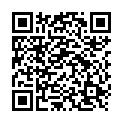|
|
|
| Module code: E406 |
|
|
1V+1U (2 hours per week) |
|
2 |
| Semester: 4 |
| Mandatory course: yes |
Language of instruction:
German |
Assessment:
Written examination
[updated 10.03.2010]
|
E406 (P213-0151) Electrical Engineering, Bachelor, ASPO 01.10.2005
, semester 4, mandatory course
|
30 class hours (= 22.5 clock hours) over a 15-week period.
The total student study time is 60 hours (equivalent to 2 ECTS credits).
There are therefore 37.5 hours available for class preparation and follow-up work and exam preparation.
|
Recommended prerequisites (modules):
E104 Fundamentals of Electrical Engineering I
E203 Fundamentals of Electrical Engineering II
E204 Measurement and Instrumentation Engineering I
E302 Measurement and Instrumentation Engineering II
[updated 10.03.2010]
|
Recommended as prerequisite for:
E512 Power Electronics II
[updated 12.03.2010]
|
Module coordinator:
Prof. Dr.-Ing. Stefan Winternheimer |
Lecturer:
Prof. Dr.-Ing. Stefan Winternheimer
[updated 10.03.2010]
|
Learning outcomes:
After completing this module, students will have acquired a basic understanding of a number of important areas of power electronics and will have the skills to select and deploy the most suitable electronic power converter for a specific application in these areas.
[updated 10.03.2010]
|
Module content:
Semiconductor components used in power electronics
Non-commutated converters
Single pulse converters
Electronic AC circuit breakers and power controllers
Phase-control reactive power
Externally commutated converters
Centre-tap connections, Current smoothing
Commutation
Bridge connections
The converter transformer
[updated 10.03.2010]
|
Teaching methods/Media:
Lecture notes, overhead transparencies, blackboard
[updated 10.03.2010]
|
Recommended or required reading:
[1]Jäger Rainer, Stein Edgar: Leistungselektronik, 5. Aufl.,
Berlin / Offenbach: VDE-VERLAG, 2000
[2]Jötten Robert: Leistungselektronik Band1: Stromrichter Schaltungstechnik,
Braunschweig, Vieweg Verlag, 1977
[3]Mohan, Undeland, Robbins: Power Electronics 2nd Edition,
New York / Chichester / Brisbane / Toronto / Singapore: John Wiley & Sons, 1995
[updated 10.03.2010]
|


